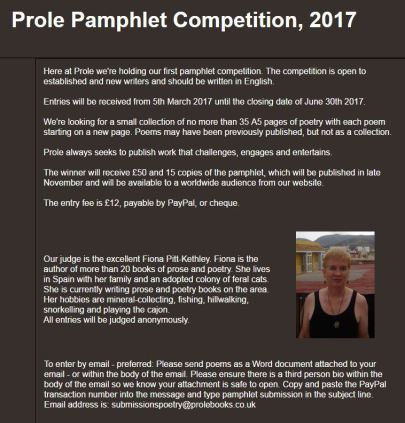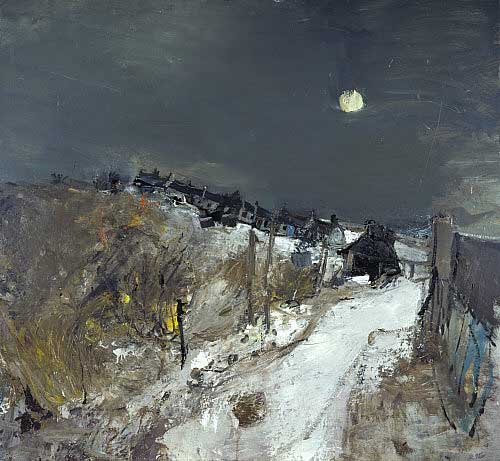
It never looked like this when I was a kid, when it was a working mill, one of three mill complexes that comprised J T & J Taylor’s shoddy woollens manufacturing company in Batley. In the early 1950’s, at the age of 100, Mr Theodore Taylor was still arriving for work at 7.00am, Monday to Friday, chauffeured there in his Daimler, all the way from Grassington in Upper Wharfedale ..about 40 miles…They don’t make them like that any more. Just about everyone in my extended family worked for Taylor’s at some time or another…weavers, spinners, clerks designers. I worked in the warehouse for a couple of summers as a student. Mr Taylor was a patriarchal chap, one of the first, and one of the few, manufacturers to run a profit-sharing scheme for all his employees; it had its downside. He would peremptorily sack any of the men who tried to recruit for the union. He took it as a personal betrayal that anyone would think he didn’t do his best for his ‘hands’. And he did take every single one of them to Blackpool to celebrate his 100th birthday; he hired the Winter gardens and booked three special trains. As I say, they don’t make them like that any more.
Still, by the most tenuous of links this brings me to today’s guest publisher, Prole Books, and their editors Phil Robertson (Prose) and Brett Evans (Poetry + entertainingly vituperative Facebook posts, and vintage jazz via You Tube). The link, which I doubt you’d have spotted , is that Prole is a profit-sharing business. Which makes it pretty special in the poetry publishing world. I couldn’t be happier to feature them today. And to acknowledge that I’m not the first to sing their praises. Wendy Pratt gave them a shout-out in Northern Soul [ http://www.northernsoul.me.uk/the-boys-from-prole/ ] in May 2014…I’ve borrowed her intro from that, because it chimes with me in so many ways:
“It seems like a miracle that a couple of lads who met via an online creative writing chat room could decide to set up a literary journal without any Arts Council funding and, while one of them works full time, make a roaring success of it. Welcome to Prole, the literary journal that champions the underdog and gives a platform to writers who may otherwise fall through the net.
There’s a special place in my heart for Prole. They’ve published my poems and their press, Prolebooks, took a chance on me as an emerging writer and printed my first pamphlet, Nan Hardwicke Turns into a Hare. They are a rags-to-riches story, except with more rags than actual riches, and are fast becoming a journal to be reckoned with.
The editors Phil Roberston and Brett Evans (prose and poetry, respectively) live some distance from each other. Phil is in Bolton and Brett is in Abergele, North Wales. Phil works full time as a primary school teacher and neither of them have much ‘free’ time, but somehow through their dedication they manage to squeeze in all the grinding editorial stuff and meet up for booze-fuelled editorials on a regular basis.”
Roy Marshall sang their praises in his blog in April 2015 [https://roymarshall.wordpress.com/tag/prole-poetry-magazine/ ].He managed to elicit a quotation I can’t resist borrowing..it’s a nice insight into the ethos I think Prole is noted for:
“[Roy] Do you have any general advice to potential contributors, either writers or those wishing to offer cover art?
Surprise us. Delight us. Make us laugh or cry, pinch the skin or punch the gut.”
I suppose you could follow the links, and ignore the rest of this post. But I’ll take it kindly if you don’t. Here we go.

It was those distinctive monochrome covers that first drew me to Prole (that and the uncompromising title) and made me want to submit work to them. And made me happy to have work accepted. I suppose we should register an interest, shouldn’t we. More about the covers later. On with the interview.
If you could kick off by describing what you’ve done so far, that would be nice. A story is always a nice beginning.
Before Prole, what was your connection with the strange world of the fiction and poetry writer?
Phil: I’d always dabbled with writing short fiction – but only on and off. When I finally sprang for a broadband connection, I discovered a now defunct writing site where writing could be shared and commented on. Overnight, I went from an audience of one (my wife) to an interested community. Having an audience, at least for me, promoted my motivation – and with practice and many failures, I started to get a few publications. As an aside, this is also where I ‘met’ Brett. Besides being my co-editor at Prole, he’s also, now, a life-long friend. Funnily enough, since starting with Prole, time for writing has been squeezed to virtually zero. My connection with the strange world of writing, is now almost exclusively, as a reader.
Brett: Phil has a much funnier version of that but I don’t suppose time allows on here. Much like Phil, I was just writing for myself and reading as much as I could. My ‘connection’ these days seems to mostly consist of ranting about poets on Facebook.
OK, now I’ll then create the illusion of a dialogue, as though we’re both sitting in a room, with cake and coffee.That sort of illusion.
Phil: Personally, I’d prefer beer and crisps.
Brett: Yes, beer for me too please. And any cheese you may have knocking about.
So:
There seem to be hundreds of small poetry presses about, and I imagine they struggle to make a living, competing as they do for what is essentially a niche market ;something led you think: there’s room for another. What was the trigger that persuaded you to set up your own publishing venture?
Phil: Honestly – we were drunk. That’s not to say we didn’t take it seriously, we did – but it did give us the audacity to swill pints and plan what we wanted to do. I think I can speak for both of here when I say we were frustrated with a good many literary publications: overly long turn-a-round times; funded but not paying their contributors; a feeling that there was often a selection policy that involved recognition of names over substance and, more frustratingly, style over engagement. I’m not speaking for Brett on this one, but I do feel uncomfortable when I see an editor’s poem (for example) contained in any publication.
Frankly, we knew nothing about how to achieve what we wanted – but we knew what we wanted: to publish quality writing that engages, entertains and challenges; have a reasonable turn-a-round time (currently about four weeks max – often shorter); to pay our contributors; not to seek funding – if Prole was to succeed, it was to stand on its own two feet – and neither of us could or can afford to subsidise Prole. It had to, and does, fund itself. Finally, it had to be fun. For the most part, it’s been a blast.
Brett: Phil, you can freely speak for me regarding editors who publish themselves.

Prole has established a clear identity as a magazine…and also as a competition. You’ve attracted a lot of submissions from well-established and otherwise successful poets. What do you put that down to?
Phil: I’ve no idea how we managed it for issue one. That was our biggest worry – would anyone take us seriously enough to submit? Seems they did. What we’ve always done is focus relentlessly on (what we consider to be) writing of quality that engages, entertains and challenges. I’d hope that while not every piece we publish hits the spot with every reader, everything we publish has quality to appeal to most. When it comes to selecting pieces, I shortlist prose, Brett shortlists poetry. We then swap. If there’s anything we don’t like after exchanging, it doesn’t get in.
Transparency is also central to what we do. Four months after publication, we send all contributors a royalty statement showing sales, costs and their royalty share. We pay out 50% of any profit for each issue. The fact that writers are recognised in this way – though they are never going to get rich on it – shows, I hope, the value we place on their contributions and skills.
We do publish ‘successful’ and ‘well-established’ writers (and also many who are not) – but we’ve also rejected the same. We publish the writing, if we think it fits our criteria, no matter who has sent it in. I’d hope that a focus on quality means that whoever submits knows that, if accepted, their writing will sit alongside other pieces that shout and sing. (I remember the joy of having a poem accepted once – then, having received my copy, realising that, generally, the content was poor – and what did that say about my offering?)
Brett: *nods* (agreeingly – not off to sleep).
Of all the lovely small poetry press publications, which are the ones that you particularly like yourself, and why?
Phil: A sad admission, I tend not to follow specific publications, but read journals from here and there. From what I’ve seen, I like The Interpreter’s House – though for my taste, not enough prose. And while this doesn’t answer the question, I’ve not discovered any small UK publication that carries a good amount of quality prose.
Brett: Definitely The Interpreter’s House, there’s always a wide range of styles in there and rare, thoughtful editorials. Bare Fiction is another I enjoy and respect, I love that scripts can be read there (I’m a sucker for reading scripts or plays). I do miss Other Poetry since it closed down and really keep hoping to see it return.
Tell us something about your design choices. Did you consciously decide you wanted a house style? Did you have any models that you wanted to borrow from?

(parenthesis…this cover’s my favourite)
Phil: I’m not aware that we’ve consciously borrowed from anywhere – though subconsciously, I’m sure we have. We decided we wanted photographic, black and white covers – usually with some element of humanity on it. Other choices, quite honestly, happened because we learned on the job (knowing nothing when we started) and just found a workable way through our enormous ignorance.
Brett: I seem to recall being influenced more by what we didn’t want but memory does not always serve the truth. I know that a perfect bound publication was agreed on from the outset and I think also the black and white photography too.
Tell us something about the snags and frustrations you encounter…
Phil: For me, it’s all to do with time. I get great holidays, but while I’m working, I have little time for anything else. I suppose it’s the small things that eat into that time that can be frustrating. For example, we don’t open attachments until we get to know a writer – so writing to request a resubmission takes time – as does filtering out all the spam we receive. My god! If they were all genuine, I’d be drugged up to my eyeballs and have every STD going. I know my lack of time can sometimes mean we complete tasks a little last minute – that’s a huge frustration.
Brett: Jesus. People sending submissions to the wrong address, selecting the wrong payment options, writers who sign and return our publication agreement then ask questions proving they have not read that or the submission/payment guidelines in the first place. I try to be as personal (ahem) as I can in replying to submissions and queries, and to keep a quick turn around so not to keep people waiting this all takes time so time taken up on these other things is frustrating. And yes, the spam – though some of it is very amusing.
How about how you set about the business of marketing, about getting the brand out there. It may be that it’s something you feel a bit at sea with. How do you get folk to review the stuff, for instance? How do you feel about the business of competitions for small publishers…stuff like the Michael Marks, for instance? Riff on this topic as you feel appropriate
Phil: Brett has done a brilliant job with social media – and I think that has been a huge benefit for us. We also have a large mailing list that we try hard not abuse – perhaps about six times a year. A lot of publicity seems to have happened organically – because we keep people informed, a Google search often finds little mentions and links back to us we weren’t even aware of. Reviews were hard to come by in the early days, and we actively contacted people asking them. Now, though not often, they just seem to happen.
As for competitions, for us, they serve two purposes. The first is they raise revenue and help us continue as a publication. (let me add my twopennorth to this. There’s been a mean-spirited thread on Facebook recently in which various sad voices have denounced all poetry competitions as elitist scams. They should listen to this) It’s not cheap. While each issue (besides issue one) has made a profit – which we’ve retained half of – there are other costs to meet: web fees, some travel costs, setting up and risking capital on new ventures we’ve no idea we’ll get our money back from etc. Competitions also, I hope, bring Prole to the attention of writers and readers who may not have heard of us, or who only look at more established publications. I do get nervous with competitions – because our editorial control is lost. Entries are handed over to whoever we’ve asked to judge and we have to trust they select something that reflects Prole – again – to engage, entertain and challenge. So far, I’ve not been disappointed.
Brett: Marketing is time consuming but the wonder that is the internet offers so many places where both print journals and ezines can be listed. I’m amazed there are so many writers accepted to keep us all in material.
I think competitions like the Michael Marks are healthy enough for those with such ambition but, without wanting to sound self righteous (but you can bet your arse it will) I always feel a little uncomfortable with such amounts of money being thrown about in the name of ‘the arts’ when I see such little being contributed to where it really matters. *Gets off high horse*
What next? More in the pipeline?

Phil: Previously, we’ve published pamphlets and one full collection. In Caboodle, we published six pamphlets in one, physical collection. This year we’ve held our first pamphlet competition. At the moment, pamphlets are on the back burner, but the pamphlet competition will remain. In October we’re holding our second Prolewrites workshop, followed by an open mic session. The first one we held (without open mic) was great fun. Hopefully, this one will be too. Perhaps some more Prole events would be something we could develop.
You didn’t ask, but….
Phil: Returning to your first question about why – the trigger.
This is going to sound pretty self aggrandising – but I’m going to say it anyway. Brett and I have shown that a printed literary magazine can stand on its own two feet and be self funding – at the same time as gaining a following , and winning a best lit mag award (Brett: And bottle of gin). We turn submissions around in good time and pay our contributors. We don’t publish ourselves** and we only (I hope) publish quality – regardless of name. I still wonder, especially in cases where publications receive funding, just exactly what they are doing – especially with the money. For the record, I do believe the arts should be subsidised – but there should be value for money. (And no – I’m absolutely not a Tory.)
You didn’t ask this either, but…
Phil: Setting up and running Prole has been hard work but extremely rewarding. When I do write, part of the reward is the simple act of creating something new. While the content of Prole isn’t our creation, we have created something new – and goes out there into the world because of what we have done. Our little babies. I’m probably due a fall – but I’m very proud of what we’ve done.
It also survives, as far as I’m concerned, because in Brett I have found an excellent friend
Brett: Bless him.
And bless you both, I say. Thank you for being so generous with your time, chaps.
** and while you don’t publish yourselves, it would be churlish to fail to point out that my readers can still buy The Devil’s Tattoo : Indigo Dreams Publishing [2015] £6.00. So they should.

Right. I’m off to Spain next Friday, and I won’t be back till September 9th; and on the 10th I’m off to Staithes to read with my mate Andy Blackford as part of the Staithes Arts festival weekend. So there won’t be a cobweb post now until Sept 17th. But there will be guest who’s well worth waiting for. Thanks for being here, and I’ll see you all in a bit. Once more…big round of applause for Brett Evans, Phil Robertson and Prole.
Ooops..nearly forgot. The latest issue , Prole 23 is out now..you can buy it via their website, using one of those cunning little Paypal buttons,. Even better, why not become a subscriber? http://prolebooks.co.uk/prole%20shop.html
















